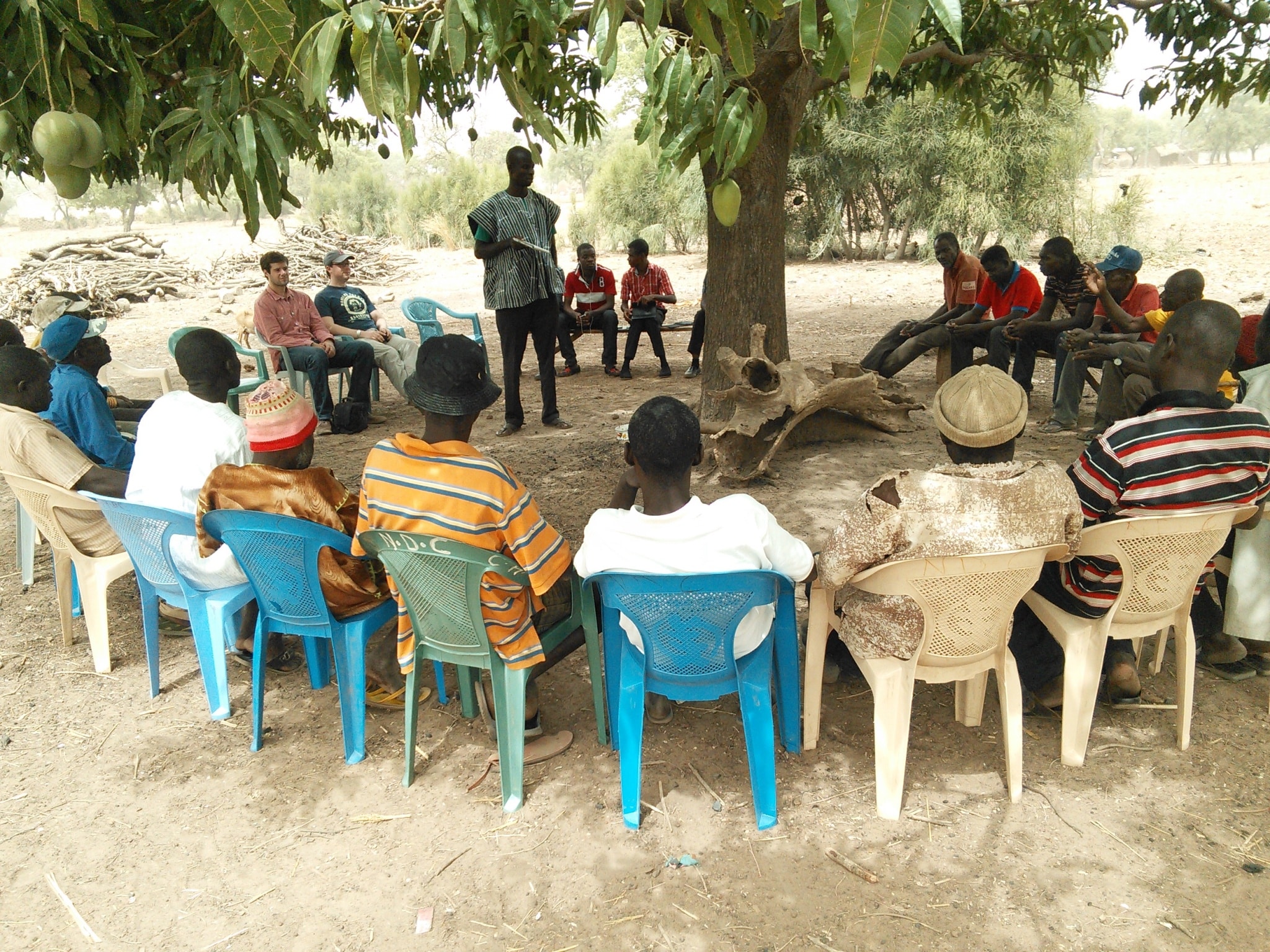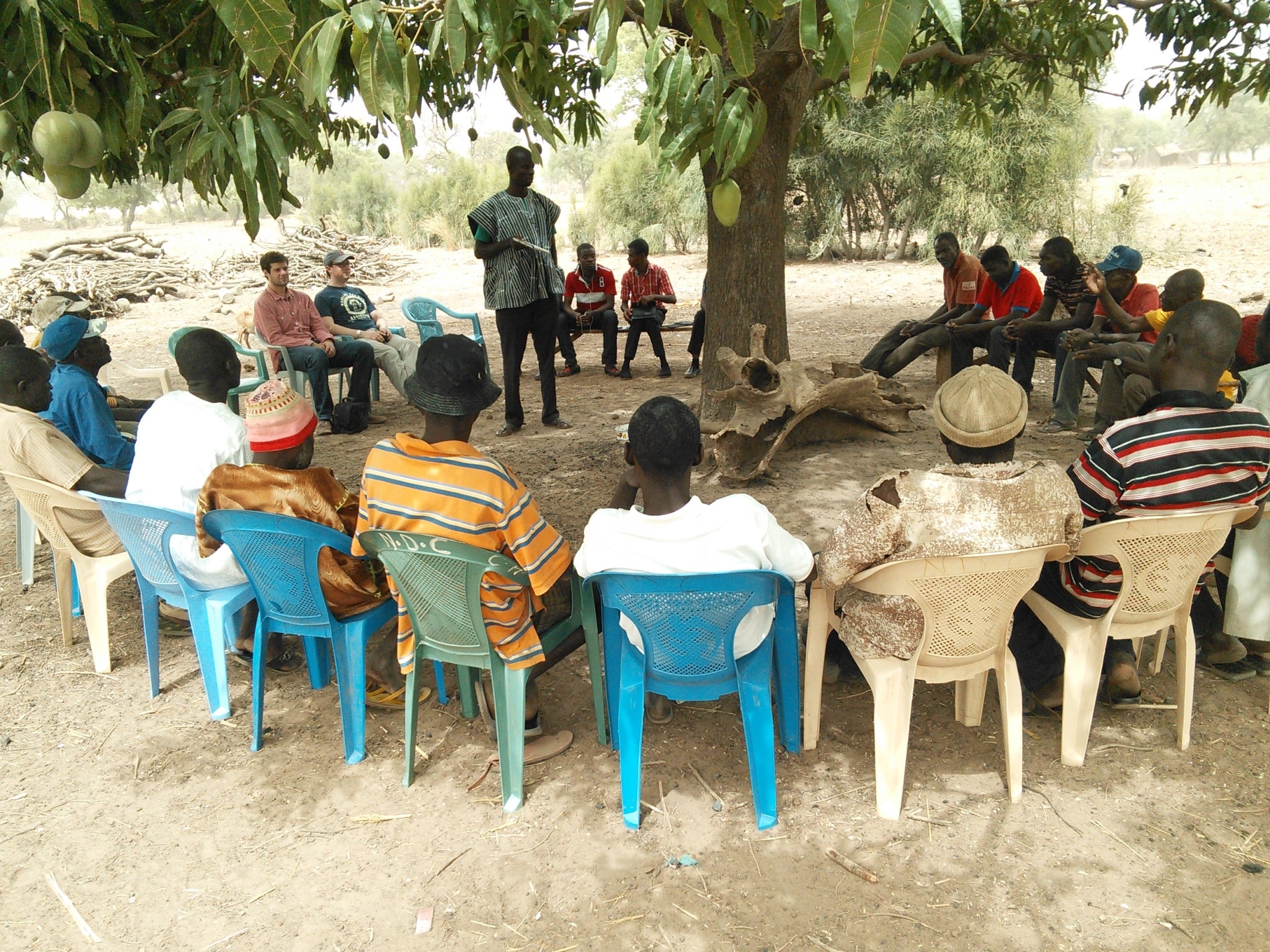
In December, we published an issue brief focused on the potential of small-and-growing businesses to create shared value for entire supply chains through their agricultural extension services. When delivered effectively, extension services can serve public objectives related to improved farmer livelihoods and environmental conservation, as well as commercial objectives related to procurement and supply chain risk mitigation.
In this post, we discuss one example of successful shared value extension from our portfolio.

Agriaccess is a private company that sources sorghum from smallholder farmers in the Upper West Region of Ghana. The business sells the sorghum to Guinness Ghana Breweries Limited (GGBL), a local subsidiary of the global drinks company Diageo, to be processed into beer and non-alcoholic products for the Ghanaian market.
Until quite recently, the sorghum supply chain in Ghana remained largely underdeveloped, focused on small-scale production, mainly for a homemade beer called pito. For most farmers, sorghum was just one of several household crops, competing with staple food crops like maize and millet for land and attention. And with no market for sorghum, farmers often resorted to selling maize and millet for income, exacerbating food insecurity in the region.
Then, in 2006 GGBL partnered with TechnoServe and other local stakeholders to develop a commercial sorghum supply chain in the northern part of the country. GGBL was looking to replace barley imports with a local substitute to lower costs and increase its regional footprint.
Following completion of the project in 2010, the three founders of Agriaccess saw an opportunity to establish a company to continue to link farmers to the growing national market for sorghum – creating enduring value for actors all along the supply chain, most notably for farmers who could keep more of their maize and millet for household consumption and use the income from sorghum for cash expenses.
The young business recognized that sorghum producers continued to face a number of challenges, which could ultimately undermine Agriaccess’ capacity to source the volumes needed to appeal to a buyer like GGBL. Many sorghum farmers were still transitioning from subsistence to more commercial-oriented farming, and farmers often varied the amount of land devoted to sorghum from year to year as household priorities shifted. And they generally realized sub-optimal yields due to degraded soils and poor or inconsistent land management practices.
In response, Agriaccess decided to launch its own agricultural extension program to help its suppliers improve their practices via:
- Individualized and centralized trainings on best agricultural practices, such as land preparation, weeding, and fertilization application, as well as training on business management skills;
- Input provision, including seeds and fertilizers; and
- Tractor and thresher provision to facilitate timely harvesting and proper post-harvest management.
Several years later, the Agriaccess team notes the benefits extension brings to their business – and to their suppliers. They believe their extension services have “changed the mindset of suppliers from subsistence agriculture to an agribusiness mindset. And [it] has improved production of not only sorghum, but other crops.”
According to the business, the program has also doubled suppliers’ yields, from an average of 0.8 tons per hectare to 1.7 tons per hectare. It’s also made it easier to track production and has improved delivery times.
Agriaccess suppliers see the benefits as well. In a separate Root Capital study conducted in 2014, over 85% of suppliers surveyed reported that their household income had increased by at least 50% since they started growing sorghum for Agriaccess.
Going forward, Agriaccess considers extension a key component of its expansion plan, to ensure continued growth in sales volume and to help retain new producers.
When asked to offer some advice to other businesses looking to establish extension programs, Tony Poore, the general manager of Agriaccess, replied:
- Take time at the beginning to understand farmer context. “Farmers will have established a certain way of doing things. When developing an extension system, you should engage them and find out what practices will be comfortable for them and what they will accept or adopt. If farmers do not understand or accept the recommendations, then the extension system will not work.”
- Start small, make it work – and it will grow. “Farmers will only follow what they see and the testimonials of other farmers. Starting with only about 360 farmers in 2011, the company now works with over 6,000 farmers – most of whom came on-board as a result of other farmers’ testimony that the training is effective.”
- And don’t forget to monitor performance. “One key in ensuring the sustainability and continuity if any extension system is developing a strong monitoring system at all points along the extension chain. There should be accountability and transparency at all levels of operations to inform extension decisions.”
To learn more about how agricultural enterprises are creating shared value through agricultural extension services, download our issue brief: